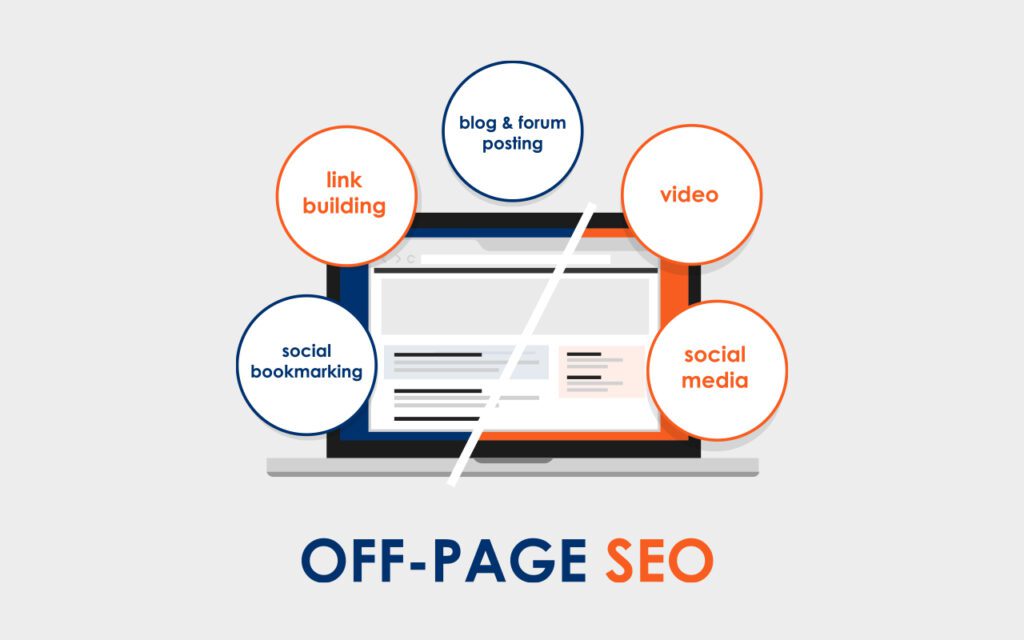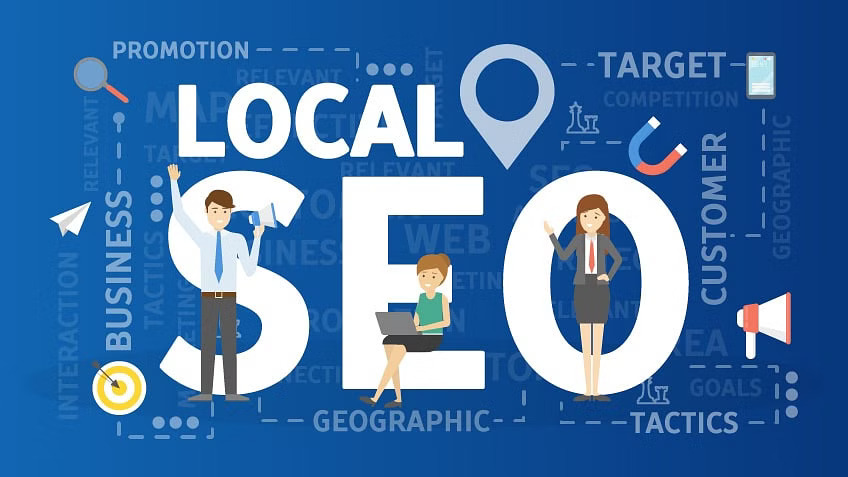In today’s digital landscape, having a strong online presence is crucial for the success of small businesses. An important factor in increasing a website’s visibility and generating organic traffic is search engine optimization (SEO). However, many small businesses may have budget constraints that make investing in expensive SEO services challenging. Fortunately, there are affordable SEO service providers available that offer quality services without breaking the bank. In this article, we will explore 12 affordable SEO services for small businesses in 2024, along with tips on choosing the right service provider and making the most of their services.
Importance of Affordable SEO for Small Businesses
Small businesses often operate on tight budgets and need cost-effective marketing strategies. SEO provides an excellent opportunity for small businesses to compete with larger companies on the online platform. By implementing effective SEO strategies, small businesses can increase their visibility, reach their target audience, and drive more traffic to their website. This increased visibility can result in higher conversion rates, improved brand recognition, and long-term business growth.
Why Should Small Businesses Invest in Affordable SEO Services?
Small businesses should consider investing in affordable SEO services for several compelling reasons.
Increased Online Visibility: In today’s digital age, having a strong online presence is crucial for small businesses to compete and reach their target audience. Affordable SEO services can help optimize the business website, making it more visible and accessible to potential customers through search engines. Improved visibility leads to increased organic traffic, brand exposure, and the opportunity to connect with a larger customer base.
Cost-Effective Marketing Strategy: Affordable SEO services offer small businesses a cost-effective marketing strategy compared to traditional advertising methods. While paid advertising can be expensive and may not always yield sustainable results, SEO provides long-term benefits without requiring substantial ongoing investments. By investing in affordable SEO services, small businesses can achieve better rankings, organic traffic, and brand visibility, generating a higher return on investment (ROI) over time.
Targeted Audience Reach: SEO allows small businesses to target specific keywords and phrases that their potential customers are actively searching for. By optimizing their website content and targeting relevant keywords, affordable SEO services help businesses attract highly targeted traffic that is more likely to convert into customers. This targeted approach ensures that small businesses are reaching the right audience, increasing the chances of generating leads and driving sales.
Competing with Larger Competitors: Small businesses often face stiff competition from larger companies with extensive marketing budgets. However, with affordable SEO services, small businesses can level the playing field and compete effectively in search engine rankings. By optimizing their website and implementing effective SEO strategies, small businesses can improve their visibility alongside larger competitors, increasing their chances of capturing a share of the market.
Improved User Experience: SEO involves optimizing various aspects of a website, including its structure, content, and navigation. These optimizations not only help search engines understand and rank the website better but also enhance the overall user experience. Affordable SEO services can improve website speed, mobile responsiveness, and user-friendly navigation, making it easier for visitors to navigate and find the information they need. A positive user experience leads to longer visit durations, increased engagement, and improved chances of conversions.
Long-Term Sustainability: SEO is a long-term strategy that can provide sustainable results for small businesses. While it takes time to see significant improvements, the benefits of SEO tend to persist over time. Once small businesses achieve higher search engine rankings and organic visibility, they can continue to reap the rewards without having to invest heavily in ongoing marketing campaigns.
Overall, investing in affordable SEO services can be a game-changer for small businesses, helping them establish a strong online presence, reach their target audience, and compete effectively in the digital landscape. It is an investment that offers long-term benefits, increased brand visibility, and the potential for business growth.
Affordable SEO Services for Small Businesses
#1 On-Page SEO

What Is It: On-Page SEO refers to the optimization of individual web pages to improve their visibility and rankings in search engine results. It involves various techniques and strategies to enhance the content and HTML source code of a webpage.
What Includes: On-Page SEO includes several key elements. Firstly, keyword optimization plays a crucial role, where relevant keywords are strategically placed in the page’s title, headings, meta tags, and throughout the content. Additionally, on-page SEO involves optimizing the URL structure, ensuring it is descriptive and user-friendly. Proper internal linking is also essential, as it helps search engines understand the website’s structure and improves user navigation. Other factors include optimizing image alt tags, using appropriate meta descriptions, and crafting engaging and informative content.
How It’s Beneficial: On-Page SEO offers numerous benefits. By optimizing individual web pages, it improves their visibility in search engine results, leading to increased organic traffic. When the content is properly optimized with relevant keywords, it becomes more attractive to search engine crawlers, increasing the chances of higher rankings. On-Page SEO also enhances user experience by providing well-structured and user-friendly web pages with valuable content. This, in turn, can result in longer on-page time, lower bounce rates, and higher conversions.
#2 Off-Page SEO

What Is It: Off-Page SEO refers to the techniques and activities performed outside of the website to improve its visibility and authority in search engine rankings. It involves strategies aimed at building a strong online presence, reputation, and link profile.
What It Includes: Off-Page SEO encompasses a range of activities. One of the primary focuses is link building, which involves acquiring high-quality backlinks from authoritative and relevant websites. This can be achieved through guest blogging, influencer outreach, content promotion, and social media sharing. Another aspect is social media marketing, where businesses engage with their audience, build brand awareness, and encourage social sharing of their content. Online reputation management is also crucial, as it involves monitoring and responding to online reviews, managing business listings, and maintaining a positive brand image across the web.
How It’s Beneficial: Off-Page SEO offers several benefits to a website. The acquisition of quality backlinks from reputable sources signals to search engines that the website is trustworthy and relevant, resulting in improved search engine rankings. A strong online presence through off-page activities helps to increase brand exposure and visibility, attracting more organic traffic. Additionally, social media engagement and content sharing can drive referral traffic to the website, expanding its reach. Overall, off-page SEO contributes to building credibility, authority, and trustworthiness in the eyes of search engines and users alike.
#3 Technical SEO

Image Source: MOZ
What Is It: Technical SEO encompasses the optimization of the technical aspects of a website to improve its visibility and performance in search engine rankings. It involves implementing best practices that ensure search engine crawlers can efficiently crawl and index the website’s content.
What It Includes: Technical SEO covers various elements. Website speed optimization is crucial, as slow-loading pages can negatively impact user experience and search engine rankings. It involves optimizing code, minimizing file sizes, and leveraging caching techniques. Another aspect is mobile-friendliness, where websites are optimized to provide a seamless user experience on mobile devices. This includes responsive design, mobile-friendly navigation, and optimized page layouts. Crawlability and site structure are also important, ensuring search engine crawlers can easily navigate and understand the website’s content hierarchy through proper internal linking and XML sitemaps. Additional factors include implementing schema markup for enhanced rich snippets, optimizing URL structures, fixing broken links, and improving website security through SSL certificates.
How It’s Beneficial: Technical SEO offers several benefits to a website. By optimizing website speed, it enhances user experience, reduces bounce rates, and increases the likelihood of higher search engine rankings. Mobile-friendliness is increasingly important as mobile usage continues to rise, and optimized mobile experiences lead to better visibility and rankings in mobile search results. Improving crawlability and site structure helps search engines understand the website’s content, leading to better indexing and improved rankings. Proper implementation of schema markup enhances the appearance of search engine results with rich snippets, attracting more clicks and increasing organic traffic.
#4 Local SEO

Image Source: Simplilearn
What Is It: Local SEO is a specialized form of search engine optimization that focuses on optimizing a website to improve its visibility and rankings in local search results. It aims to connect businesses with local customers who are actively searching for products or services in their specific geographic area.
What It Includes: Local SEO includes various strategies and tactics tailored for local search. One key aspect is optimizing the Google My Business (GMB) listing, which involves creating or claiming a business profile, ensuring accurate and consistent NAP (Name, Address, Phone number) information, selecting relevant categories, and adding engaging business descriptions and photos. Local keyword targeting is important, optimizing website content and meta tags with location-specific keywords to improve visibility for relevant local searches. Online reviews also play a crucial role, as businesses need to actively manage and encourage customer reviews on platforms like Google, Yelp, and industry-specific review sites. Other factors include optimizing website content with local landing pages, creating local citations in online directories, and ensuring consistent and accurate business information across the web.
How It’s Beneficial: Local SEO offers numerous benefits for businesses targeting local customers. It helps increase visibility in local search results, making it easier for potential customers to find and connect with the business. Local SEO focuses on highly targeted, location-specific keywords, resulting in better quality leads and improved conversion rates. By optimizing the Google My Business listing and managing online reviews, businesses can build trust and credibility with local customers. Additionally, local SEO strategies often lead to higher rankings in map listings and the local pack, which prominently feature businesses in search engine results, further enhancing visibility and driving traffic.
#5 E-commerce SEO

Image Source: Search Engine Journal
What Is It: E-commerce SEO refers to the optimization of an online store’s website and product pages to improve its visibility and rankings in search engine results. It involves implementing strategies specifically tailored for e-commerce websites to attract organic traffic, increase conversions, and drive sales.
What It Includes: E-commerce SEO encompasses various elements that are crucial for online stores. Keyword research and optimization are essential, targeting relevant keywords related to products, categories, and user search intent. Product page optimization involves optimizing product titles, descriptions, URLs, and meta tags to improve their visibility in search results. Technical aspects such as website speed optimization, mobile-friendliness, and structured data implementation for product schema markup are also important for e-commerce SEO. User experience optimization includes improving site navigation, enhancing product filtering and sorting options, and streamlining the checkout process. Additionally, e-commerce SEO involves optimizing the internal linking structure, managing duplicate content issues, and leveraging user-generated content such as customer reviews and ratings.
How It’s Beneficial: E-commerce SEO offers several benefits for online stores. Improved visibility in search engine results increases organic traffic, attracting more potential customers to the website. Targeted keyword optimization helps drive qualified traffic, leading to higher conversion rates and increased sales. Optimized product pages provide clear and informative details, enhancing the user experience and building trust with customers. Technical optimizations improve website performance, resulting in faster page loading times, which positively impact user experience and search engine rankings. Effective e-commerce SEO strategies can also contribute to building brand authority and loyalty, as satisfied customers are more likely to engage, share, and recommend the online store.
#6 Voice Search SEO

Image Source: Search Engine Journal
What Is It: Voice Search SEO refers to the optimization of a website’s content and structure to improve its visibility and rankings in voice search results. With the increasing popularity of voice assistants like Siri, Google Assistant, and Alexa, optimizing for voice search has become crucial for businesses to reach and engage with their audience.
What It Includes: Voice Search SEO involves specific strategies to align with the way people use voice search. One key aspect is focusing on long-tail keywords and conversational phrases that people commonly use when speaking rather than typing. This includes optimizing content to answer specific questions that users might ask voice assistants. Structured data markup, such as schema.org markup, can help search engines understand and extract information more effectively. Optimizing for featured snippets is also important, as voice assistants often rely on featured snippets to provide direct answers to user queries. Additionally, ensuring mobile-friendliness and website speed optimization are crucial, as voice searches are frequently performed on mobile devices.
How It’s Beneficial: Voice Search SEO offers several benefits for businesses. With the rising popularity of voice assistants, optimizing for voice search improves a website’s visibility and increases the chances of being featured as a top answer. This can lead to higher organic traffic, brand exposure, and potential conversions. Voice searches often have local intent, so optimizing for local SEO is particularly relevant for voice search queries, helping businesses capture local customers who are actively using voice search to find nearby products or services. By providing direct and concise answers to user questions, businesses can enhance their brand authority and build trust with their audience.
#7 Video SEO

Image Source: Houston Video
What Is It: Video SEO refers to the optimization of video content to improve its visibility and rankings in search engine results. It involves implementing strategies that help search engines understand and index video content, as well as attract relevant viewers to the videos.
What It Includes: Video SEO includes various techniques and practices specific to video content. One crucial aspect is keyword research and optimization. This involves identifying relevant keywords and incorporating them into video titles, descriptions, tags, and transcripts. Optimizing video metadata, such as thumbnail images and video duration, also contributes to better visibility. Ensuring proper video sitemaps and schema markup can help search engines index and understand video content more effectively. Additionally, promoting video content through social media, embedding videos on relevant web pages, and encouraging user engagement through likes, comments, and shares can enhance video visibility and reach.
How It’s Beneficial: Video SEO offers several benefits for businesses and content creators. Optimized video content can appear in both video search results and traditional search results, increasing the chances of attracting organic traffic and exposure. Videos often have higher engagement rates, leading to longer on-page time and improved user experience signals that positively impact search engine rankings. Video content also provides an opportunity to convey information in a visually engaging and memorable way, allowing businesses to showcase products, explain concepts, or share valuable insights. Additionally, videos are highly shareable, which can amplify brand awareness and reach a wider audience.
#8 Content SEO

What Is It: Content SEO refers to the optimization of website content to improve its visibility and rankings in search engine results. It involves creating high-quality, relevant, and optimized content that aligns with user search intent and satisfies their information needs.
What It Includes: Content SEO encompasses various elements focused on creating valuable and search engine-friendly content. Keyword research plays a crucial role, identifying relevant keywords and incorporating them strategically within the content. This includes optimizing titles, headings, meta tags, and throughout the body of the text. Quality content creation is important, ensuring the content is informative, engaging, and well-structured. It should provide valuable insights, answer user queries, and meet their expectations. Content optimization also involves ensuring proper formatting, utilizing relevant multimedia elements such as images and videos, and optimizing internal linking to enhance content discoverability and navigation.
How It’s Beneficial: Content SEO offers several benefits for websites and businesses. By creating optimized and valuable content, websites can attract organic traffic from search engines, increasing visibility and brand exposure. Content that aligns with user search intent and provides relevant information builds trust and credibility with users, leading to higher engagement and increased conversions. Well-optimized content also improves search engine rankings, as search engines recognize and reward websites that provide high-quality and relevant content. Additionally, valuable and shareable content has the potential to attract backlinks from other websites, further enhancing SEO efforts.
#9 International SEO

What Is It: International SEO refers to the optimization of a website to target multiple countries or languages, with the goal of improving its visibility and rankings in international search engine results. It involves implementing strategies that cater to the specific needs and preferences of different regions and languages.
What It Includes: International SEO encompasses various elements to effectively target international audiences. One key aspect is conducting thorough keyword research for each target country or language. This includes identifying local keywords, search trends, and cultural nuances to optimize website content accordingly. Implementing hreflang tags is crucial, as it helps search engines understand the language and country targeting of different versions of a website. Website structure and URL optimization play a role as well, ensuring clear language and country indicators in URLs and utilizing appropriate subdirectories, subdomains, or ccTLDs (country code top-level domains). Localization of content, such as translating and adapting website content to the target audience’s language and culture, is also important for international SEO success.
How It’s Beneficial: International SEO offers several benefits for businesses targeting global markets. Optimizing a website for different countries or languages increases its visibility in relevant local search results, allowing businesses to reach a wider audience and expand their customer base. By tailoring content to local preferences, businesses can better engage with international users, build trust, and improve conversion rates. International SEO also helps businesses effectively compete with local competitors and establish a strong online presence in various markets. Moreover, it enables businesses to take advantage of international trends and capitalize on opportunities in different regions.
#10 Image SEO

What Is It: Image SEO refers to the optimization of images on a website to improve their visibility and rankings in search engine results. It involves implementing strategies that make images more discoverable, descriptive, and relevant to user search queries.
What It Includes: Image SEO encompasses various elements focused on optimizing images for search engines. One crucial aspect is optimizing image filenames, using descriptive and relevant keywords instead of generic names. Image alt tags are essential, providing alternative text that describes the image’s content to assist visually impaired users and search engines in understanding the image. Image size optimization is important for faster page loading times, as large images can slow down website performance. Adding relevant captions and contextual information around the images can also enhance their SEO value. Additionally, creating an image sitemap and submitting it to search engines helps ensure proper indexing and visibility of images.
How It’s Beneficial: Image SEO offers several benefits for websites and businesses. Optimized images can appear in image search results, attracting additional organic traffic and potential customers. Well-optimized images enhance the overall user experience by providing visual context and improving website aesthetics. Images that are properly labeled and described with alt tags can contribute to accessibility and inclusivity, ensuring that visually impaired users can understand the content. Optimized image sizes help improve website loading speed, which is a crucial factor for user satisfaction and search engine rankings. Furthermore, optimized images are more likely to be shared and linked to, contributing to increased brand exposure and potential backlinks.
#11 Social Media SEO
What Is It: Social Media SEO refers to the optimization of social media profiles and content to improve their visibility and rankings in search engine results. It involves implementing strategies that enhance the discoverability and search engine relevance of social media assets.
What It Includes: Social Media SEO encompasses various elements focused on optimizing social media profiles and content. One key aspect is optimizing profile information, including usernames, handles, and bio sections, with relevant keywords and descriptive language. Hashtags play a crucial role in social media SEO, as they help categorize content and make it more discoverable. Optimizing social media posts with relevant keywords, engaging captions, and multimedia elements like images and videos also contributes to better visibility. Additionally, acquiring quality backlinks to social media profiles and content can enhance their authority and search engine rankings.
How It’s Beneficial: Social Media SEO offers several benefits for individuals and businesses. Optimized social media profiles and content can appear in search engine results, increasing brand visibility and online presence. By leveraging social media platforms, businesses can engage with their audience, build brand awareness, and drive traffic to their website or other digital assets. Optimized social media posts with relevant keywords and engaging content are more likely to be shared and liked, expanding their reach and potential audience. Moreover, social media profiles often rank high in search engine results, making it crucial to optimize them for a positive first impression and better control of online reputation.
#12 SEO Analytics

What Is It: SEO Analytics refers to the collection, analysis, and interpretation of data related to search engine optimization efforts. It involves using various tools and techniques to measure and evaluate the performance of SEO strategies, identify areas for improvement, and make data-driven decisions to optimize website visibility and rankings.
What It Includes: SEO Analytics encompasses various aspects of data analysis related to SEO. It involves tracking and analyzing key performance indicators (KPIs) such as organic traffic, keyword rankings, click-through rates (CTRs), conversion rates, and bounce rates. Website analytics tools like Google Analytics provide valuable insights into user behavior, traffic sources, and user engagement metrics.
Keyword research tools help identify keyword opportunities and measure keyword performance. Backlink analysis tools assist in monitoring and evaluating the quality and quantity of backlinks pointing to a website. Additionally, SEO analytics involves competitor analysis to benchmark performance against industry competitors and identify areas of competitive advantage.
How It’s Beneficial: SEO Analytics offers several benefits for businesses and website owners. By analyzing SEO data, businesses gain a deeper understanding of their website’s performance in search engine rankings and organic traffic. It allows businesses to identify which keywords and strategies are driving the most valuable traffic and conversions. SEO analytics helps uncover user behavior patterns, allowing businesses to optimize their website structure, content, and user experience to improve engagement and conversions. By monitoring competitor performance, businesses can identify opportunities, adjust their SEO strategies, and stay ahead in the competitive landscape. Overall, SEO analytics provides actionable insights that enable businesses to make informed decisions and continually improve their SEO efforts.
Factors to Consider When Choosing an Affordable SEO Service
When choosing an affordable SEO service provider, it’s essential to consider several factors to ensure you get the best value for your investment.
Cost
The cost of SEO services can vary significantly depending on the provider and the scope of services offered. While affordability is a crucial aspect, it’s essential to strike a balance between cost and quality. Cheaper services may not always deliver the desired results, so it’s important to evaluate the cost in relation to the services provided.
Services Offered
Different SEO service providers offer various packages and services. It’s crucial to assess your business’s specific needs and choose a provider that offers services aligned with your goals. Some common services offered by affordable SEO providers include keyword research, on-page optimization, link building, content creation, and performance tracking.
Experience and Expertise
When selecting an SEO service provider, consider their experience and expertise in the field. Look for providers that have a track record of working with small businesses and achieving consistent results. Experienced providers understand the nuances of SEO and can tailor strategies to suit your business’s unique requirements.
Customized Strategies
Each business is different, and what works for one may not work for another. Affordable SEO service providers should be able to offer customized strategies tailored to your business’s specific needs. Avoid providers that offer a one-size-fits-all approach and look for
Final Thoughts
We explored various types of SEO and their importance in today’s digital landscape. SEO, encompassing on-page, off-page, technical, local, e-commerce, voice search, video, content, international, social media, image, and SEO analytics, plays a vital role in improving website visibility, attracting organic traffic, and enhancing online presence.
Small businesses, in particular, should consider investing in affordable SEO services due to the numerous benefits it offers. Affordable SEO services can help small businesses increase their online visibility, reach their target audience, compete with larger competitors, and achieve a higher return on investment. SEO provides a cost-effective marketing strategy that generates sustainable long-term results and improves the overall user experience.
Moreover, SEO analytics tools enable businesses to measure and analyze their SEO performance, make data-driven decisions, and continuously improve their strategies. By leveraging these tools, businesses can gain valuable insights into keyword rankings, organic traffic, user behavior, and competitor performance.
In summary, understanding and implementing various SEO techniques can significantly impact a business’s online success. Whether it’s optimizing website content, enhancing user experience, targeting specific audiences, or leveraging social media platforms, SEO plays a crucial role in driving organic traffic, increasing brand visibility, and ultimately achieving business growth in the digital age.

